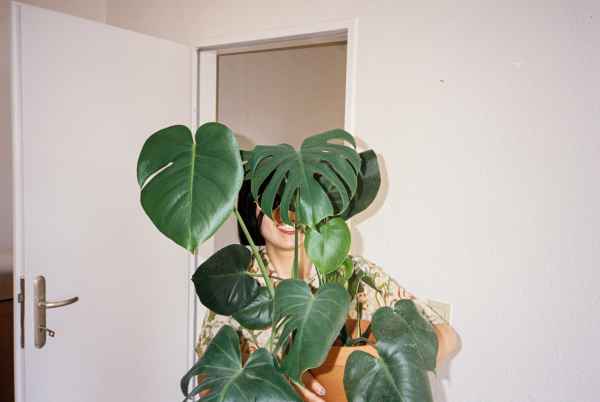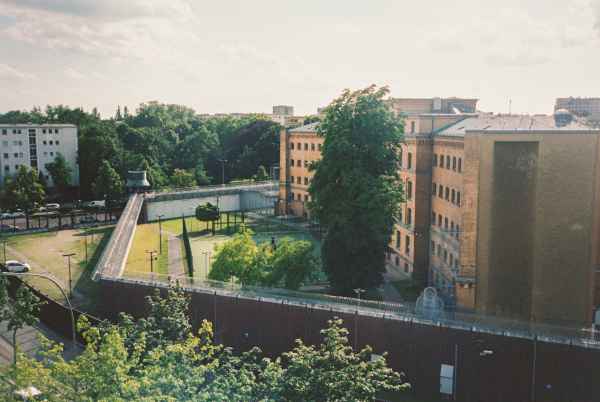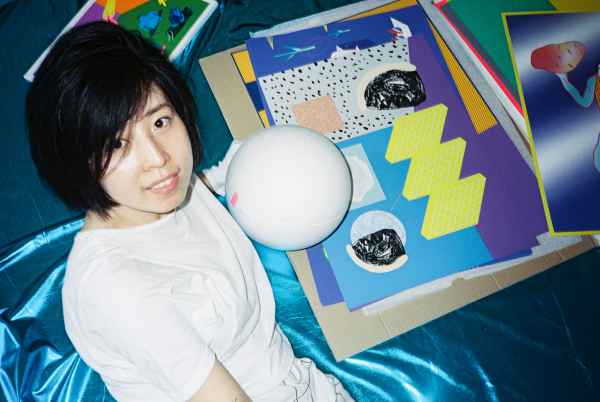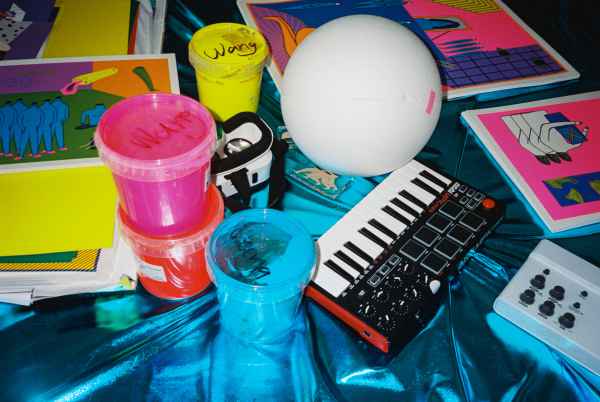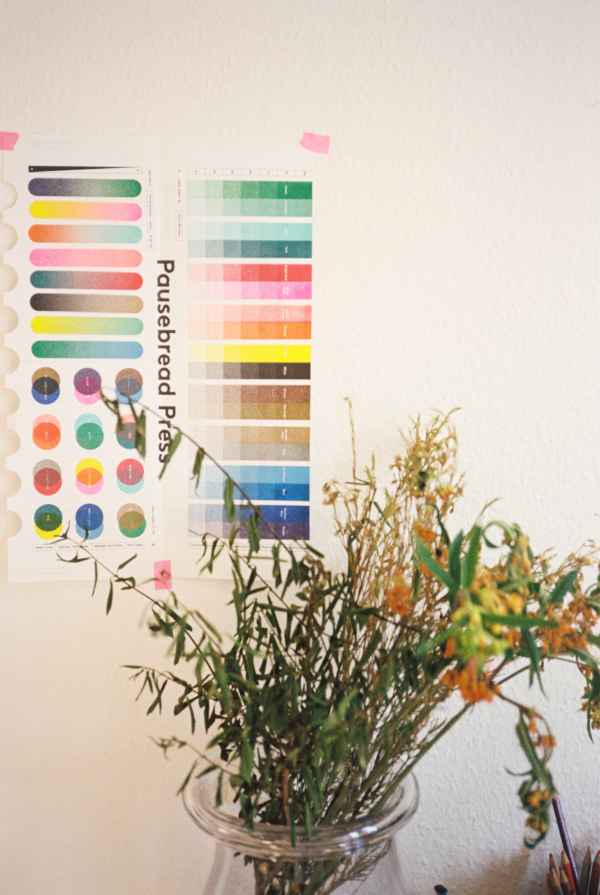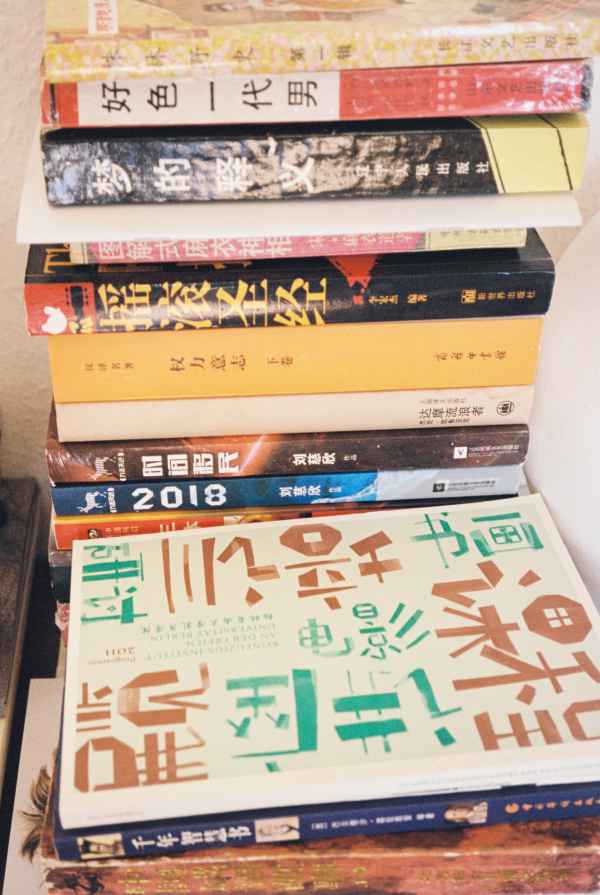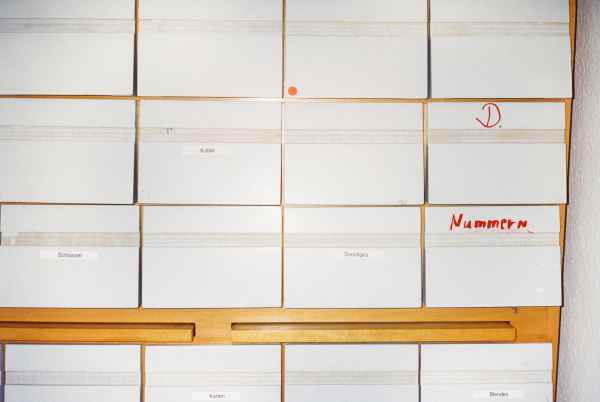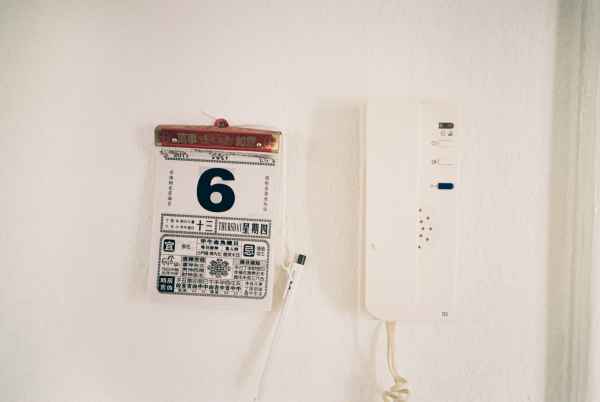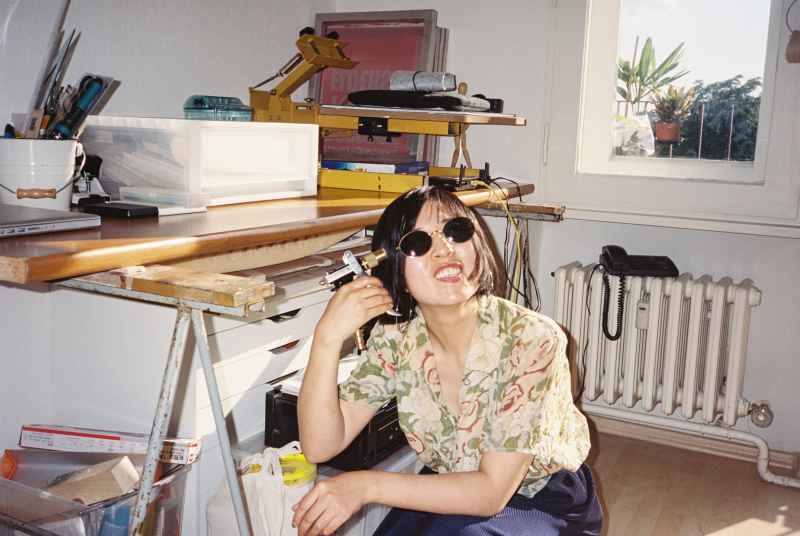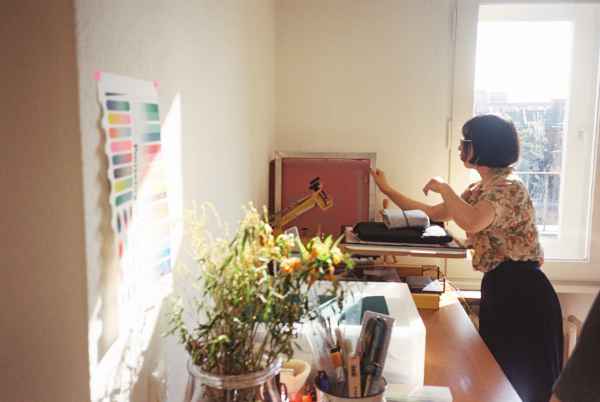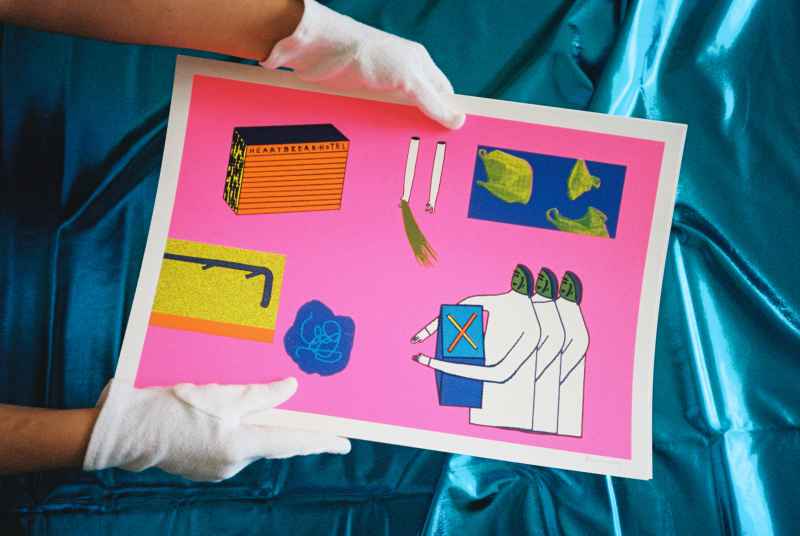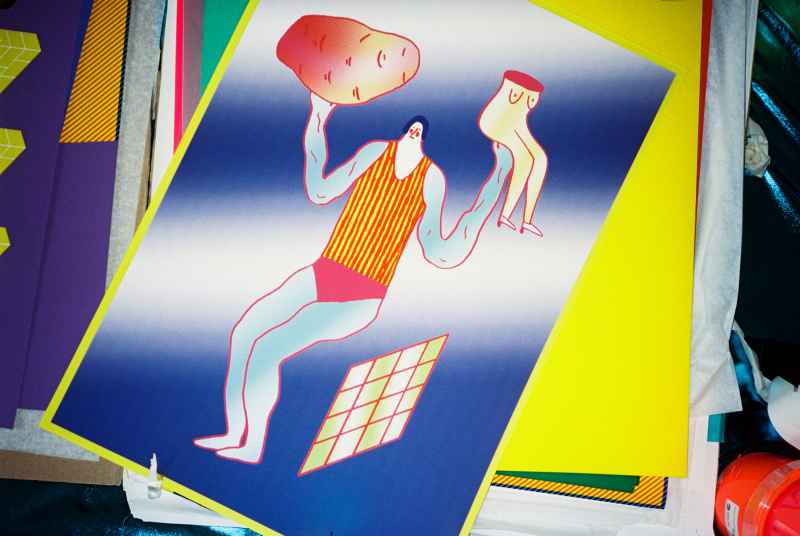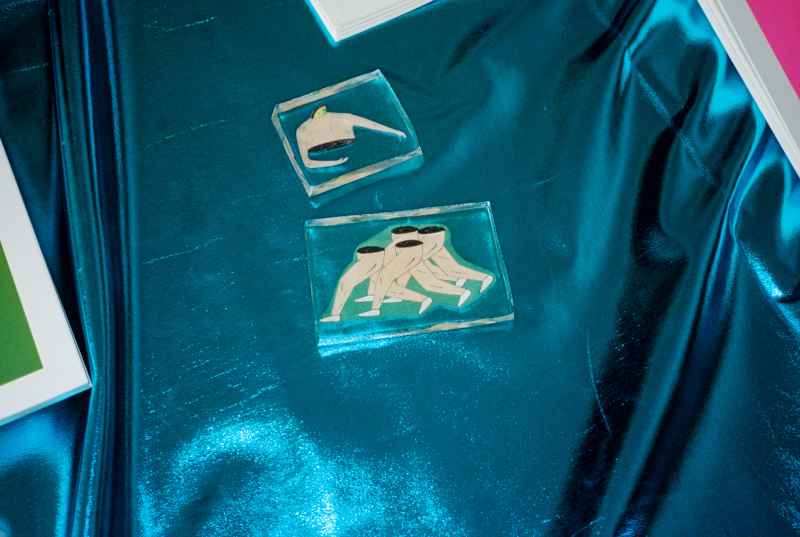Ruohan Wang
interviewed on — edited by Nina MonnetIntroduction
Chinese illustrator and VJ artist VJ artist1 playfully merge static illustrations with other experimental media. She considered moving to Japan or the US after finishing her Bachelor in Beijing. The choice, however, fell on Berlin and the chance to explore a new corner of the world and the challenge of learning a new language. Fremde Gestalten met Ruohan in her apartment in Moabit and had a chat with her about living and working in Berlin and how to write the perfect CV to get an apartment.
It would have been easy for me to choose Japan
,
Ruohan explains to us as she reflects on her decision on moving to Berlin. She has now been living in the city for almost five years and has completed both her Master’s degree and her Meisterschüler2 in Berlin at the Universität der Künste.
Japan is very close to China in distance but also culturally. We even have some similar words. Just as with the US, I already knew a lot about Japan from popular culture, movies and books. In school, we learned about the history of Europe and the fine arts revolution. This idea of Europe and all the different people and different things you can see really attracted me. For me, Europe was something unfamiliar and different. The thought of moving here was simply more interesting
,
Ruohan tells us.
Of course the differences from China are very big, which naturally makes it more difficult for me, but also more attractive! I liked the challenge of moving to Germany and found it interesting to learn a new language
.
Why Germany
Did you move to Germany first and then start to learn the language here before you applied to the UdK?
Once I decided on moving to Germany I signed up for a course at the Goethe Institute in Beijing. I did evening classes during the weekends and learned German for a whole year.
So then you must have known for quite a while that you wanted to go to Germany?
Actually, it happened very fast. I just decided one day that I wanted to go to Germany to study and then almost the next day I went to the Goethe institute and signed up for a course.
What made you interested in Germany?
I had actually been to Germany before I decided to move here. In 2009, during my Bachelor, I travelled around Europe visiting different cities with my family. I didn’t find Berlin to be particularly modern, but it was my style. It’s not like a capitalistic city; many things look neutral rather than constructed and fancy like other modern European cities.
Education system
At the UdK your major was also Visual Communications as you studied in Beijing. How was it to study this in Berlin compared to Beijing?
Actually, during my bachelor in Beijing, there were no specialized classes like a graphic design class for example. We were a class of 24 students from the beginning of the first year, so it was just like a small community. We all had the same classes, like 2 semesters with graphic and then the next semester for photography. So we were together for four years and learned a lot of different stuff, but we didn’t specialise in anything. It was more superficial.
What did you think of the education system and atmosphere at the UdK?
I found it to be very free actually. I felt very free all the time in the class as well; you could do anything you wanted as long as you took your 30 credit points per semester.
Style and university
Have your style or way of drawing changed ever since you started university in Berlin?
Yes, I think it definitely changed. I didn’t see that much illustrative works before I moved here. In China, you see more typical Asian style, like typical Korean or Japanese illustrations or Chinese traditional paintings. But in Berlin, I saw and experienced many different styles. At the UdK I learned many new techniques such as silkscreen, lithography, and overprints. They were totally new to me! In China, we don’t learn these techniques in school and I wouldn’t have the chance to try silkscreen and overprints. The German education system gives you much more freedom to work on your style and the chance to learn craft techniques in the studio workshops. In Beijing, I mostly worked with computer and my work was digitally printed.
Did you have to pay for university in Beijing?
Sure. 2000 euros for one year.
Is that amount affordable for most people?
Studying art and design in China usually means that your family earns O.K. or are even quite rich.
Chinese education system
You explained that your Bachelor in Beijing was more about learning several things in general rather than learning some specific field in detail. So if you would’ve done a Master’s degree in China, would you then have gotten the possibility to specialize in a certain field of design, or how does it work?
It’s horrible actually. After my bachelor, I decided not to stay in China for my Master. To get into a Master you have to do a lot of things, such as an entrance examination where you are tested on basic knowledge such as politics and history. In addition, you need to pass a difficult exam in English, which is okay as it’s useful. But you also have to pass a mathematics exam if you want to do a Master. I would have had to study for an exam in a field, which I think, is unnecessary. Not to mention all the competition there is to get into a Master.
Exam in politics
Wait, is the exam for politics and history to verify peoples political stand and ideology fulfilment?
No, it’s rather just to check the basic ability and knowledge. It’s not like a verification of ideology to hunt down anti-government people. Ruohan laughs.
Meisterschüler
For your Meisterschüler study your research topic was the combination of illustration and experimental media, and for your presentation, you did an interactive audio-visual animation3 performance. In many ways, your Meisterschüler marked a shift where you went from doing a lot of printed work to doing something completely different like Gifs. When was the first time you did these Gifs? Was it for a client or for university?
The first Gif I did was about a guy who grows these seeds and flowers. It was a job for the Humboldt University for the Anthropozäne Exhibition at Martin- Gropius-Bau where I did the part for Chinese food history, culture and industry.
Internet and new studio
In terms of the Internet…because, some of your work seems to be inspired by the Internet or could only exist on the Internet. Is that something you can explore more in Germany that would have been the case if you had lived in China? Or wouldn’t they [the Chinese Government] control that kind of thing?
Yeah sure. If I am in China there are certain Internet problems. Like I can’t use Tumblr, Facebook or Instagram… well, sure I can but then I will have to pay for the firewall. So sure, here in Berlin I can use everything and post my stuff everywhere. Also, the Internet works really quickly here and you get more visitors than in reality. And Gifs can work only on the Internet.
Now you have your own studio in Berlin and it’s your home at the same time.
Yes, it’s like a home office. Before I moved here to Moabit in March I used to have my own studio separate from my home. It was just a small space, a small room for myself.
Why did you combine them?
The studio was too small and I often work late at night. I figured that my life is my work and my work is my life so why not combine them into the same space? It works really well actually.
I used to have this dream actually to have a small studio and make it as a teashop at the same time. I love tea and also love to share good tea I know. It would be a great possibility to make an income from selling tea to support the rent costs. It’s still my dream…or maybe it was just a dream.
(Ruohan laughs.)
Finding work
Do you feel that you always have to look for a job or do the clients come to you?
Sure you have to be active. This year I was busy with my solo exhibition and up until now, I haven’t updated my website in a while. I will do that now and be more active and send out my work to potential clients and then I’m sure the jobs will come.
Revisit something
Just to revisit something you said earlier before we started recording; you said that in China, compared to in Berlin, one of the differences was that hardly anyone freelance. They all start and work for a company where they end up staying.
Yes, it’s just to get money and survive. So if I went back to China I would probably have to give up freelancing. I would maybe still be an artist, like a poor artist rather than surviving.
Is there a big difference do you find, between graphic designers and illustrators in China as compared to Berlin? For example, if you compare with your prior fellow students in China?
Well, most of them work with illustrations, and the style is much sweeter than the style in Berlin. You know a bit like Korean-style? Like very light and cute. And the clients in China also seem to want this sweet style. It's very popular.
Only big clients
Let’s talk about your clients. Would you say that you have more clients from bigger companies?
Actually, all of my clients are from big organisations, like for example Marni.
Marni section
Mani?
Marni….do you know?
Maaaarni. M-AR- N-I. Ruhoan spells the name. ”It’s a designer”.
Ah! Ma-R-ni! Marni! Yeah!
They are Italian? Or French? Based in Paris?
I think Italian…
Armani? It’s Italian.
Not Armani! Maaarrrni!
Ah, Marni!
Armani is very…luxus, but Marni is more “Prêt-à-porter” style.
Oh I see, its not like Armani.
Armani is like an old classic.
(Everybody laughs over the misunderstanding.)
German clients
What about your German clients as compared with Chinese clients? Are there any differences in their work practices for instance?
Well, I guess the differences are more cultural. For instance, in the way they contact me. Chinese clients always want to communicate with me through WeChat. (Ruohan laughs). Whereas the Germans are much more polite and prefer emails. Very official, like Dear Frau Ruhoan Wang..blablabla
.
Where do you feel your creative work is more respected?
In Germany and Berlin.
So they like more your style and are more open to your style here?
Yeah, but I don’t only think that they like my style more or are more open to it, but that they, in general, are more open-minded and respectful towards all creative work. That being said, I’m currently working on some stuff for some big clients in Beijing, some installations for public spaces. The difference is that here in Berlin, I’m regarded as an international artist. I’m more exotic. Whereas in Beijing I’m just there, I’m nothing! (Ruohan laughs.)
Feeling international
So you feel special in Berlin?
Yeah, I feel I’m international here.
Berlin as a city
Does the city also feel special to you in any way?
Yeah, I really like the people here…how can I explain…It’s not a very kind or beautiful city. Neither are the people. They are not too friendly and just don’t talk that much. But there is a different quality of life here and a lot of different people and personalities. People, what they say and what they talk about…the topics are more interesting in Berlin. People like to talk about politics and the environment but also about humanity, the cosmos and such.
Very philosophical?
Yes! And the people also see each other…there are a lot of personality colours. It doesn’t matter if you are Chinese or German; if your work is good you get the job. They don’t discriminate and people get the same opportunities.
Are there any changes in your lifestyle since you moved to Berlin? Like your perspective or thoughts?
I think that ever since I moved to Berlin I don’t look for tomorrow but live today. Everyday life has become my goal. Also, I must say life is more comfortable here. I feel that I can focus better here on my work and relax better. As an artist, you can do more good or creative things here because there is not the same pressure as back home.
Chinese contacts
Do you get contacted a lot by Chinese people or artists who want to move to Berlin?
Sure, but it's not that easy with the Visa and to integrate into this culture here. I started here so I know how it works and how to communicate with people. But for newcomers, it’s hard and even harder if they don’t speak good English. But yeah, I have the feeling that Berlin in 10 years will be even less attractive than what it is today. Higher rent and so on. So they will look for another place to go, maybe Leipzig. (Ruohan laughs.)
Berlin style
Do you think there is a certain Berlin style?
I think its just crazy! And also there is no certain style, it just seems very natural. If I think a style is cool one day I just go for it and people won’t judge but be like “Ok, cool! That’s your style!” People are just very brave here and go on with their style. Also with graphics, I think the fonts are very crazy. I like it actually! Maybe people and designers try out more things because they style changes very quickly here. It’s very free.
I never saw a certain style in Berlin; it’s always so different.
Oh I saw!
Really?
Yeah, you have to go to cool events. Crazy people will appear! One time I saw this person dressed up with just two oranges.
Berghain style
Yes, I agree, there are many different styles, but like no specific trend although people seem to wear a lot of black here, like the Berghain-style. But it’s very intuitive, like if it feels right its right. I think it’s a lot based on gut feeling and that goes for design and art as well.
I think Berlin people don’t like standards or rules. They just try it even if it’s crazy.
Living in Moabit
You live in Moabit. How do you like your neighbourhood?
Well, I choose this area because it's very cheap compared to other areas, but I like it. There is a park here, and a Mini golf place and a basketball place. But for coffees and stuff, I go to Mitte. Well, actually this area belongs to Mitte. But the coffee here is awful and there are no people. People only pass by this area. But 5 minutes on the bike and you are close to many places; Hauptbahnhof, Invalidenstr. and Torstr where you find a lot of galleries. But Moabit is perfect because its cheap, not far from the center and I can go anywhere with my bike. My apartment is around 95m2 with a balcony, facing the sunny side and overlooking a jail actually! When I went to get this apartment I tried all the things that I read you should do. For example, I wrote a CV where I said that I’m starting my studies at the UdK and that I don’t drink or smoke. I even wrote down my hobbies, which were cleaning rooms and watering plants! (Ruohan breaks out laughing.) Well, it seems very funny, but I actually think that it worked. Or maybe they just trusted that I was a good person that was able to pay the rent on time.
Forever berlin
Do you plan on living in Berlin forever?
Ruohan laughs.
Yeah sure! I feel culturally that I’m a Berliner now. When I go back to China now, I don’t feel as comfortable as I do here. China is very capitalistic. My friends pay a lot to go to good coffee places and restaurants. It’s all about money so it’s very boring. In Berlin, you can go to the Späti and pick up some beers and sit by the river. That’s the Berlin way. But in China it’s more like: So, what restaurant got five stars? Ok, let's go there!
That’s the hipster style over there and it's very expensive to maintain as compared to Berlin.
Thank you Rouhan
Thank you Ruohan for taking the time to meet us! Ruohans work was recently exhibited at Migrant Birds Space4 a gallery who represents her in Berlin.
Check out more of Ruohans work here: ruohanwang.com
- 1
Ruohan Wang's graduation work ruohanwang.com/indexGraduation.html
- 2
Meisterschüler is a program for further studies offered at German art and music universities for remarkable students.
- 3
Description of Ruohan Wang's Meisterschüler work with video. https://ruohanwang.com/description.html
- 4
Migrant Birds Projects is a Berlin-based contemporary art project providing a showcase for artists and services in the cultural industries. www.facebook.com/MigrantBirdSpace/
